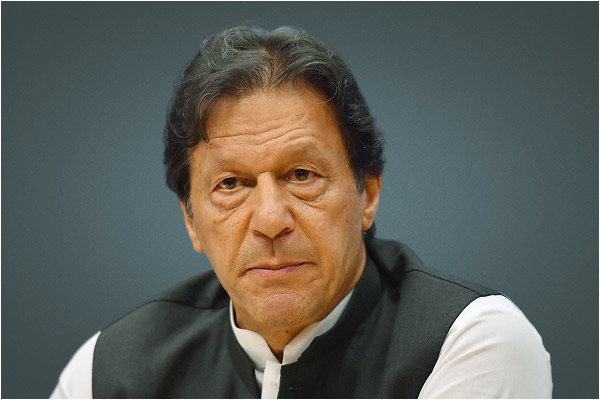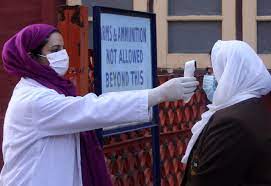
Pakistan seeks ‘Guarantees’ on J&K for better ties
The thaw comes after a considerable deterioration in ties that followed New Delhi’s decision to do away with the special status granted to J&K under Article 370.
Constitutional guarantees on not changing the demography of Jammu & Kashmir would go a long way in creating an “enabling environment”, Pakistan has conveyed to India, highly placed government officials told.
The thaw in the India-Pakistan relationship that started with the restoration of the 2003 ceasefire along the Line of Control (LoC) in February, through a statement by the Director Generals of Military Operations, has led to a series of moves, including Pakistan on Wednesday signalling a limited resumption of trade through the import of cotton and sugar before back-tracking on Thursday.
Prime Ministers Narendra Modi and Imran Khan, too, have written to each other, with Khan saying that an “enabling environment” was imperative for a constructive and result-oriented dialogue in response to Modi’s letter which stressed the importance of “an environment of trust” that is “devoid of terror and hostility”.
The thaw comes after a considerable deterioration in ties that followed New Delhi’s decision to do away with the special status granted to J&K under Article 370. In August 2019, the Centre simultaneously did away with 35A, a special provision that disallowed outsiders from buying land and property, and also divided the state into two Union territories.
“We have pointed to Article 371 which provides special protection to several states in the North-east,” said a senior Pakistani official familiar with the back channel talks, who did not want to be identified. Talks are purportedly on between the National Security Advisers of India and Pakistan, though Moeed Yusuf, special representative to Khan on security, has denied the talks.
Indian officials in the ministries of home and external affairs, when contacted, said they were not aware of the back-channel dialogue or if there was even such a dialogue.
One official, however, pointed out that the summer months are crucial, and they are looking to see if the ceasefire holds and the infiltration numbers come down. The U-turn on resuming limited trade, though, was indicative of the slippery road ahead.
For any forward movement, that could take the shape of a dialogue, India will be looking at the “terror index”, to gauge Pakistan’s sincerity in normalising ties and moving from military defence to economic security, as articulated by Pakistan’s army chief, General Qamar Javed Bajwa.
Another Pakistani official, while reiterating that the application of Article 371 to Jammu & Kashmir would “go a long way” in creating an enabling environment, said, “If the North-east can have constitutional guarantees, why not J&K? We have a domestic audience to take care of as well.”
In his letter to Modi, Khan said that durable peace and stability was contingent on resolving all issues between the two countries, “in particular, the Jammu & Kashmir dispute.”
Most of the provisions under Article 371 — meant to protect tribal communities and cultures in the North-east — enable de-centralised governance with a degree of administrative autonomy. Importantly, the provisions restrict land transfer to those defined as outsiders to the state concerned. They primarily affect Mizoram, Nagaland and parts of Manipur, Assam and Meghalaya. As one official quoted above pointed out, “Under Article 371, the Constitution provides special provisions for the hill states with domicile rights, similar to what Jammu & Kashmir had under Article 35A.”
In August 2019, when J&K’s special status was nullified, home minister Amit Shah had assured Parliament that no changes were planned vis a vis the North-east under Article 371.

